A block of mass 1kg slides down a curved track which forms one quadrant of a circle of radius 1m as shown in figure. The speed of block at the bottom of track is v=2ms−1. The work done by the of friction is
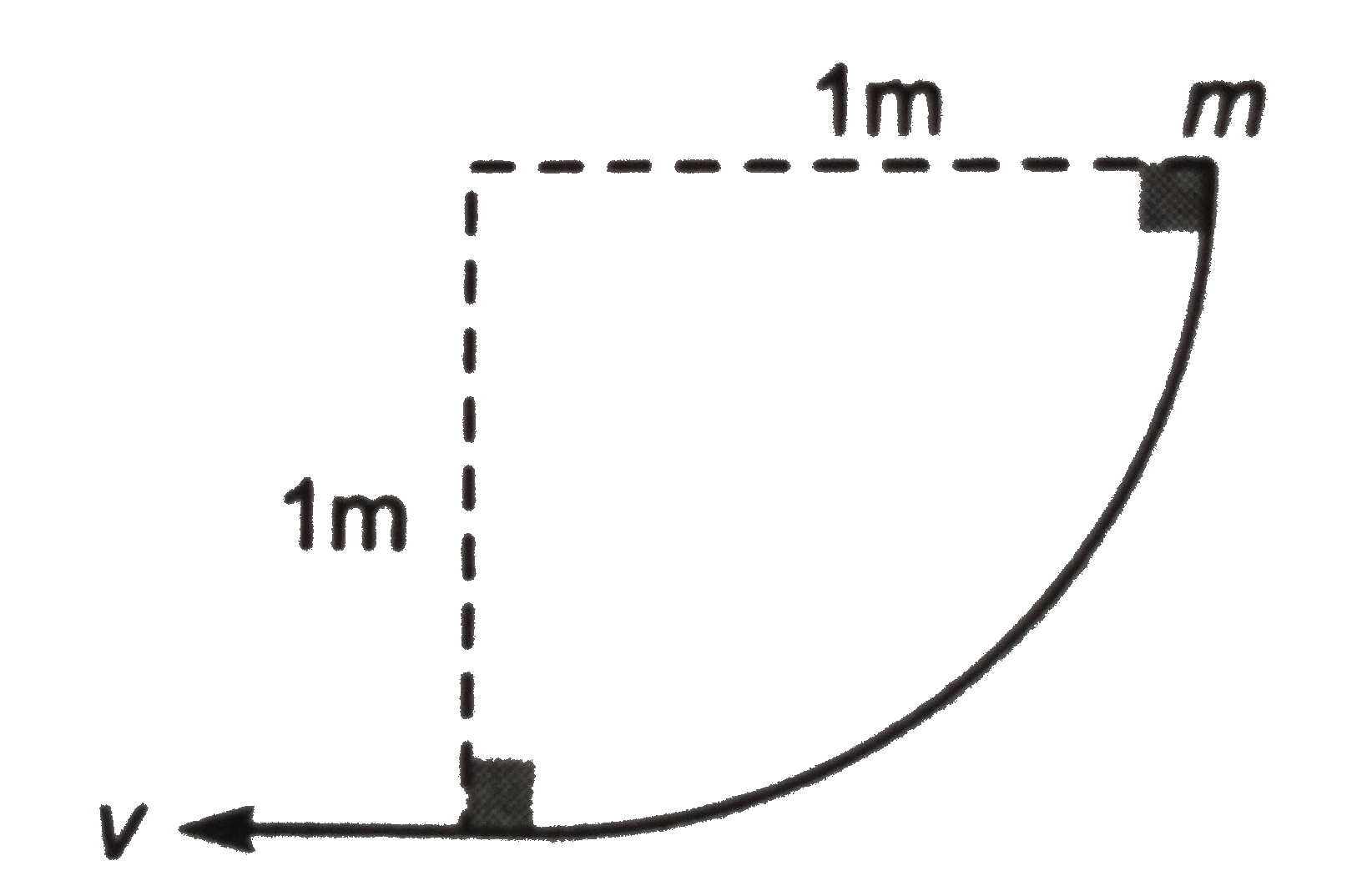 .
.
+4J
−4J
−8J
+8J
The correct Answer is:C
Work done by friction friction =Ef=Ei
=12×1×(2)2−1×10×1
=−8J
Similar Questions
Knowledge Check
A block of mass 1 kg slides down a vertical curved track that is one quadrant of a circle of radius 1m. Its speed ast the the bottom si 2m/s. The work done by frictional force is :
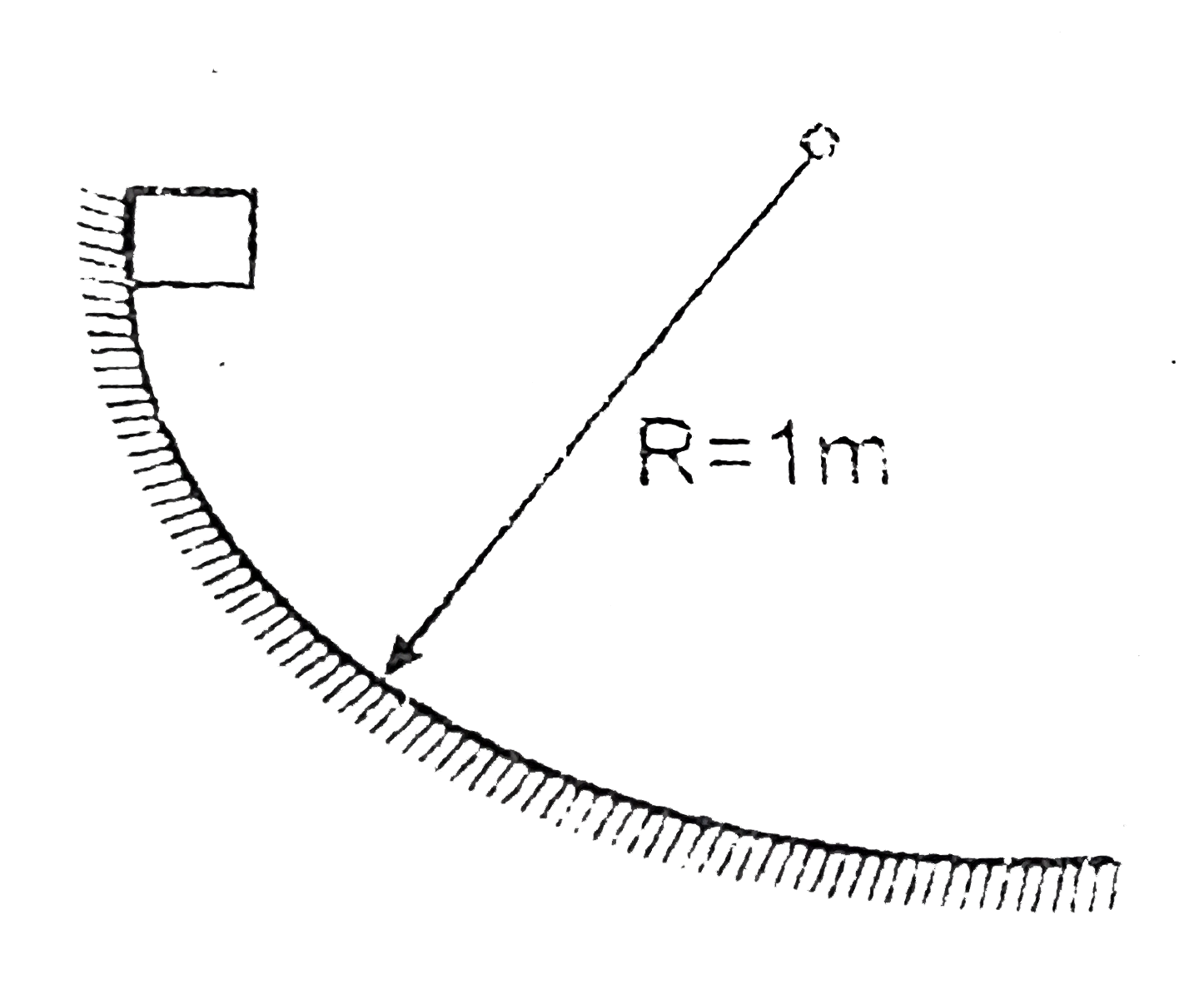 A8JB−8JC4JD−4J
A8JB−8JC4JD−4JA block of mass 1 kg slides down a vertical curved track that is one quadrant of a circle of radius 1m. Its speed ast the the bottom si 2m/s. The work done by frictional force is :
 A8JB−8JC4JD−4J
A8JB−8JC4JD−4J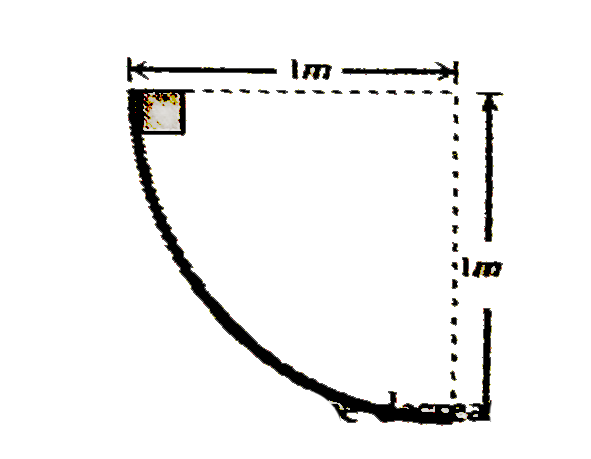
A body of mass 2kg slides down a curved track which is quadrant of a circle of radius 1 metre . All the surfaces are frictionless. If the body starts from rest, its speed at the bottom of the track isA4.43m/secB2m/secC0.5m/secD19.6m/ec
A body slides down a fixed curved track that is one quadrant of a circle of radius R, as in the figure. If there is no friction and the body starts from rest, its speed at the bottom of the track is
View SolutionA block of mass m slides down along the surface of the bowl from the rim to the bottom as shown in fig. The velocity of the block at the bottom will be-
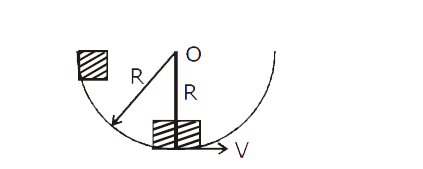
View SolutionA block of mass 1Kg is fastened to one each of a wire of cross-sectional area of 2mm2 and is rotated in verticle circle of radius 20cm. The speed of the block at the bottom of the circle is 3.5ms−1. The elongation of the wire when the block is at top of the circle
View Solution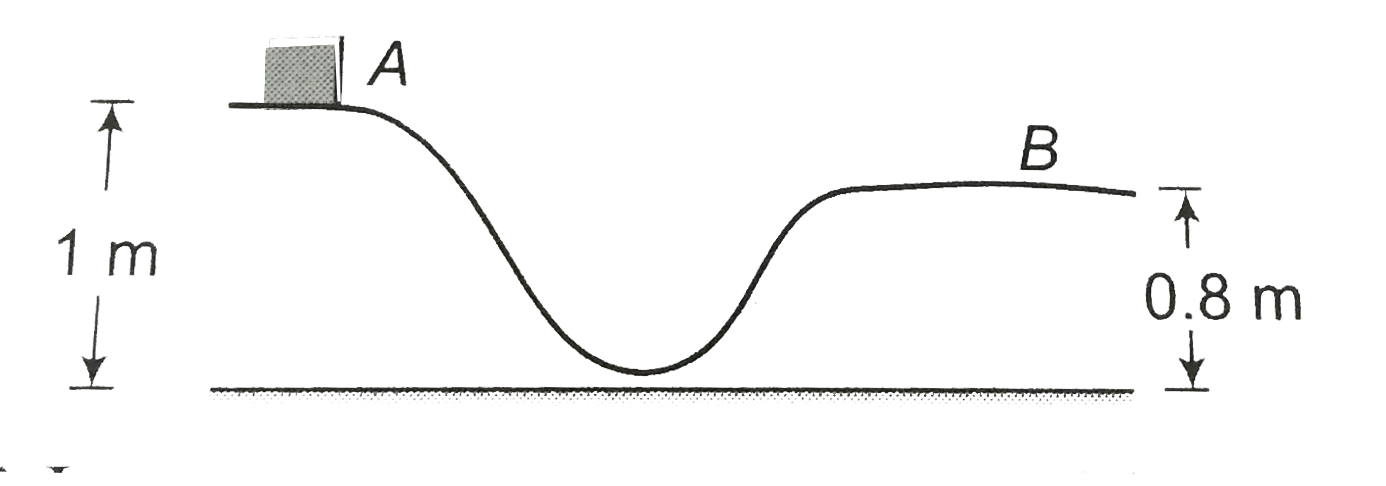
A block of mass 1 kg is placed at the point A of a rough track shown in the figure. If slightly pushed towards right, it stops at the point B of the track. The work done by the frictional force on the block during its transit from A to B is
View SolutionA block of mass 1 kg is pushed towards another block of mass 2 kg from a 6 m distance as shown in the figure. If just after the collision, the velocity of 2 kg block is 4ms−1, then

View Solution
